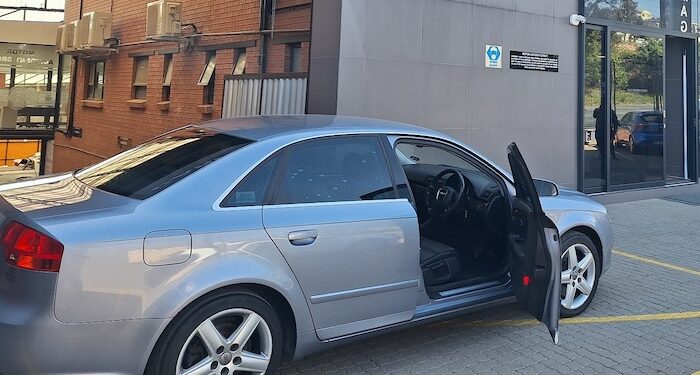In an age where slick branding and carefully crafted mission statements dominate the corporate landscape, many businesses have perfected the art of promising excellence.
But when those promises collapse under the weight of poor service delivery, it is the customer who is left paying the price — both financially and emotionally.
I recently experienced such a collapse at the hands of the Motor Accident Group (M.A.G.), a Johannesburg-based auto repair company boasting a legacy dating back to 1982. On their website, they proudly promise “refinement,” “perfection,” and “peace of mind.” My experience was the exact opposite.
What began as a simple window repair for my Audi A4 quickly spiralled into a 90-day nightmare. The car was delivered to the workshop on 21 February 2025.
Good faith
I paid over R900 for a diagnosis, which was supposed to involve stripping and diagnosis — a thorough inspection of all components related to the window failure, including motors, regulators, control modules, wiring, and more.
This was a paid-for service, so I expected it to be comprehensive — and I trusted that it would be, given that all four windows were not functional.
After receiving a quotation, I approved it in good faith. I even requested a photo of the control module unit to better understand the part involved. That request was oddly denied, with the explanation that the electrician hadn’t accessed the part yet.
This was the first red flag: what exactly did I pay over R900 for if the key component — the control module — hadn’t even been accessed so much so they were not able to provide its photo? This led to a second critical question: how was a quotation produced without properly assessing the condition of all relevant components?
Benefit of the doubt
Still, I gave M.A.G. the benefit of the doubt, trusting their claimed 43 years of experience. I was informed that the control module had been ordered on 6 March. SMS updates between 7 and 25 March claimed the vehicle was “in progress”.
However, when I followed up by phone two and a half weeks later, I discovered — to my disbelief — that they were attempting to repair the old control module and had even tried sourcing a second-hand unit. This contradicted their earlier claim that a new part had been ordered.
I was also suddenly told I needed to pay an additional R5 000 on top of the original quote — not via formal communication, but as an offhand discovery during a call.
Vague SMS updates
It became evident that no new part had ever been ordered. So, I took matters into my own hands: within six hours of contacting Audi myself, the correct control module was sourced, collected.
I personally delivered to M.A.G the following day – Saturday, 29 March. Ironically, I received a photo of the part immediately this time — in stark contrast to their previous refusal.
After spending R12 000+ to secure this part, I expected meaningful progress. Instead, I was met with more vague SMS updates and no real results, until I received one that said I must come fetch my car – after numerous emails.
When I went to collect my vehicle, I was presented with a R9 000 invoice for partial work. The windows still didn’t function and the R12k part (control module) that I ran around sourcing, sat unused in my car’s trunk.
I could not accept the vehicle in that condition.
‘By chance’
In disputing how everything turned out, a new formal quotation followed, this time in the region of R15 000 (what you don’t know is that this was preceded by another informal amount of R20 000 that they claimed was from the electrician.
Again this was informal a “by chance” discovery whilst trying to sort out the dispute), to address window motors and wiring. How could such basic faults not have been identified at the outset, especially given the initial complaint that all windows were inoperable? It’s clear that the initial diagnosis was flawed, and that the quoted service was misrepresented.
To share an electrician’s report two months in when they have already given the initial quotation did not make sense at all.
To add insult to injury, not once did the company take responsibility for the delays, the confusion, or the misinformation. No apology. No accountability. Nothing.
Troubling pattern on Hello Peter
I now find myself questioning whether further damage may have occurred while my vehicle was in their care. It’s baffling that after three months, such fundamental issues were still unresolved. The lack of consistency and transparency only deepens this suspicion.
When I finally collected my vehicle (24 May 2025), I was exhausted, frustrated, and under threat of incurring R4 071 in storage costs. I had to release my car because their language was “storage fees” . The longer I fight, the more storage fees I risked racking up.
And it’s not just me. A quick glance at M.A.G.’s HelloPeter profile reveals a troubling pattern: reviews citing delays, shifting costs, poor communication, and a clinical detachment from the human realities of leaving customers without transportation for months.
For me, this ordeal meant relying on Uber rides, scrambling for school drop-offs, and absorbing a cascade of unforeseen expenses. It’s exhausting. It’s disrespectful. It’s simply not sustainable.
Treat customers with dignity
Even my attempts to escalate the matter to the company’s senior leadership was met with indifference and a cold, dismissive attitude toward my legitimate concerns.
When companies claim passion and precision, but deliver confusion and disregard, we must ask: what value do these brand promises really hold?
This isn’t a personal rant. It’s a broader call to business owners and service providers: treat your customers with dignity. Your brand is not defined by what you say — it’s defined by what people experience. And in my case, that experience was one of profound failure.
Raphala Mogase, the Audi owner, writes in his personal capacity. He is a public relations practitioner by profession.














